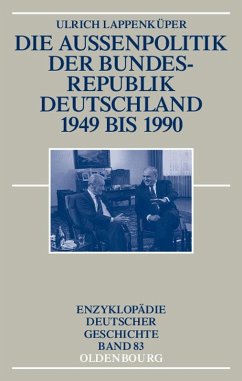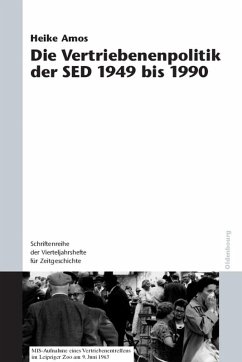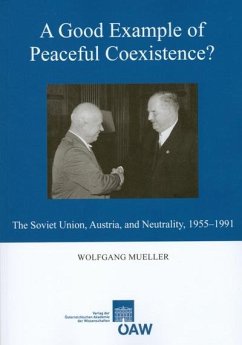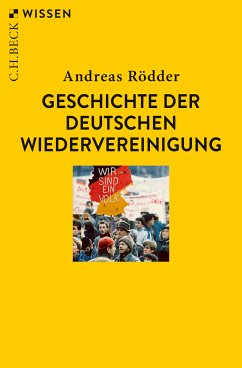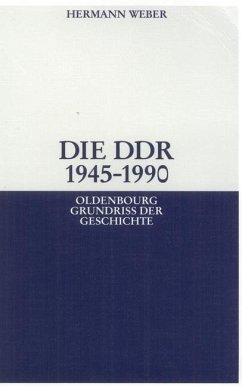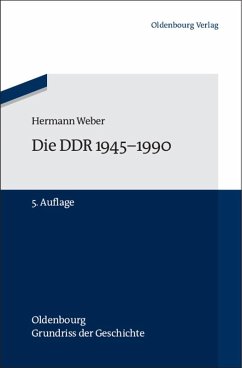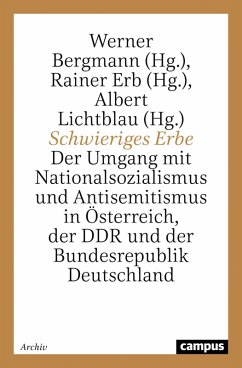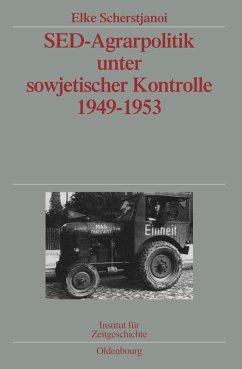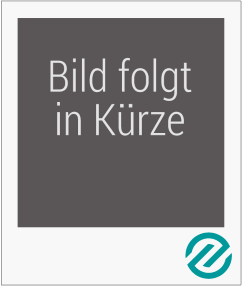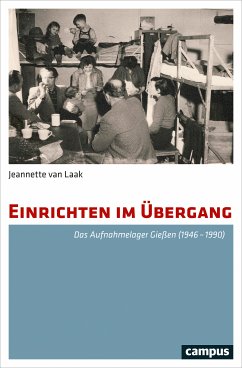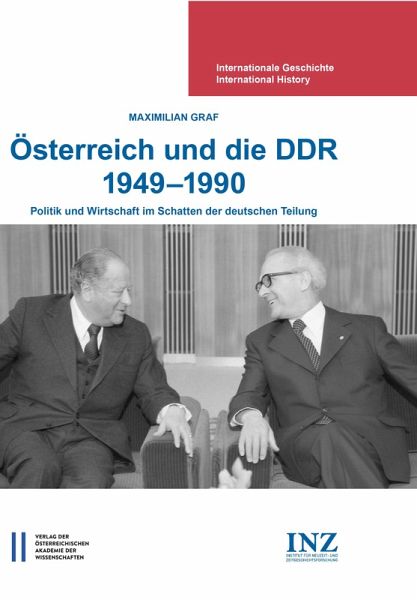
Österreich und die DDR 1949-1990 (eBook, PDF)
Politik und Wirtschaft im Schatten der deutschen Teilung
Redaktion: Gehler, Michael; Mueller, Wolfgang
Versandkostenfrei!
Sofort per Download lieferbar
Statt: 79,00 €**
58,00 €
inkl. MwSt. und vom Verlag festgesetzt.
**Preis der gedruckten Ausgabe (Gebundenes Buch)
Alle Infos zum eBook verschenken

PAYBACK Punkte
0 °P sammeln!
Basierend auf umfassenden Archivrecherchen liegt hier die erste Gesamtdarstellung zu den Beziehungen zwischen Österreich und der DDR während des Kalten Kriegs vor. Ausgehend von den divergierenden Entwicklungen Deutschlands und Österreichs nach dem Zweiten Weltkrieg wird zunächst die Zeit bis zur Anerkennung im Jahr 1972 analysiert. Offizielle Beziehungen zur DDR waren aus Rücksicht auf die BRD tabu, aber dennoch entwickelten sich intensive inoffizielle diplomatische und bisher gänzlich unbekannte politische Kontakte. Diese führten zwar nicht zu einer rascheren Anerkennung der als Paria...
Basierend auf umfassenden Archivrecherchen liegt hier die erste Gesamtdarstellung zu den Beziehungen zwischen Österreich und der DDR während des Kalten Kriegs vor. Ausgehend von den divergierenden Entwicklungen Deutschlands und Österreichs nach dem Zweiten Weltkrieg wird zunächst die Zeit bis zur Anerkennung im Jahr 1972 analysiert. Offizielle Beziehungen zur DDR waren aus Rücksicht auf die BRD tabu, aber dennoch entwickelten sich intensive inoffizielle diplomatische und bisher gänzlich unbekannte politische Kontakte. Diese führten zwar nicht zu einer rascheren Anerkennung der als Pariastaat wahrgenommenen DDR durch Österreich, legten jedoch den Grundstein für die spätere Entwicklung der Wirtschaftsbeziehungen. Dieser Abschnitt behandelt schwerpunktmäßig auch das Schicksal der 20.000 im deutschen "Arbeiter- und Bauernstaat" lebenden Österreicher. Nach der Aufnahme diplomatischer Beziehungen avancierte Wien zum diplomatischen "Eisbrecher" für die DDR; Ost-Berlin honorierte dies mit humanitären und wirtschaftlichen Konzessionen. Die 1975 - sehr zum Missfallen der BRD - erfolgte Anerkennung der DDR-Staatsbürgerschaft ermöglichte die Lösung humanitärer Härtefälle. Kanzler Bruno Kreisky wurde zum Vorreiter in den westlichen Besuchskontakten mit der DDR, was eine veritable Ausweitung der Wirtschaftsbeziehungen zur Folge hatte. Österreich vergab erhebliche Kredite und erhielt dafür im Gegenzug Großaufträge für seine verstaatlichte Industrie. Dieses Geschäftsmodell half der maroden DDR, ihre Zahlungsfähigkeit zu erhalten. Dagegen waren die DDR-Geschäfte ein Hauptgrund für die schwere Krise der österreichischen Verstaatlichten Mitte der 1980er-Jahre. Dennoch war eine Wirtschaftspartnerschaft entstanden, und Österreichs Haltung zur deutschen Einheit war zumindest ambivalent. Die vorliegende Studie ist ein fundamentaler Beitrag sowohl zur Geschichte der DDR-Außenpolitik als auch zur politischen Kultur des neutralen Österreich - insbesondere in der Ära Kreisky.
Dieser Download kann aus rechtlichen Gründen nur mit Rechnungsadresse in A, B, BG, CY, CZ, D, DK, EW, E, FIN, F, GR, HR, H, IRL, I, LT, L, LR, M, NL, PL, P, R, S, SLO, SK ausgeliefert werden.




